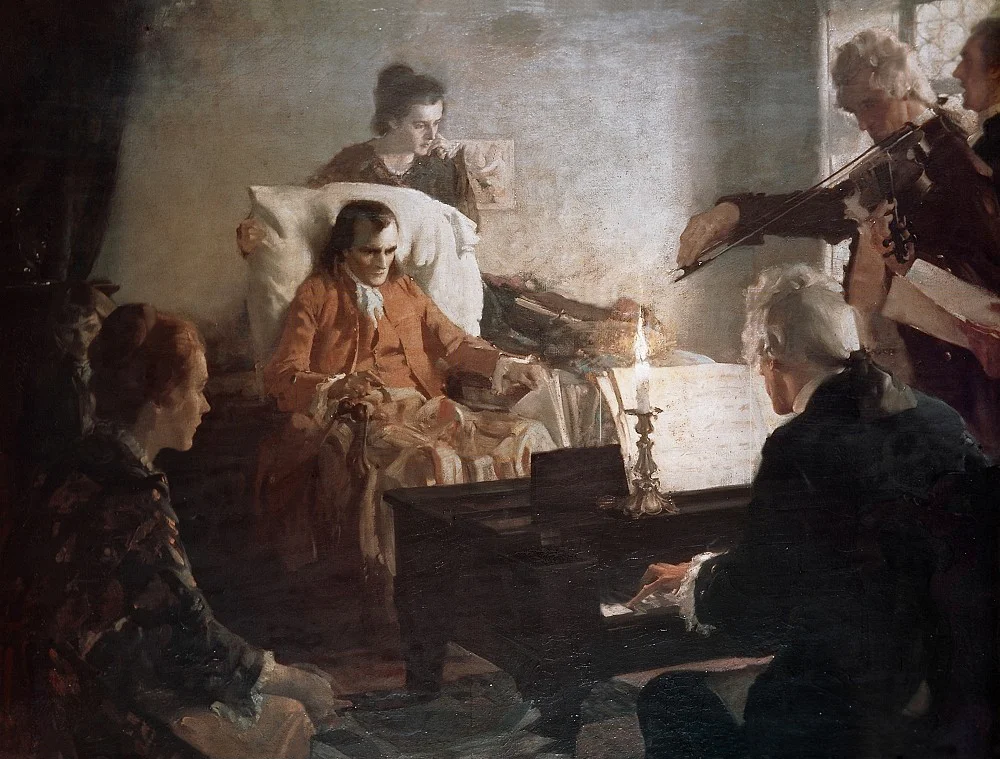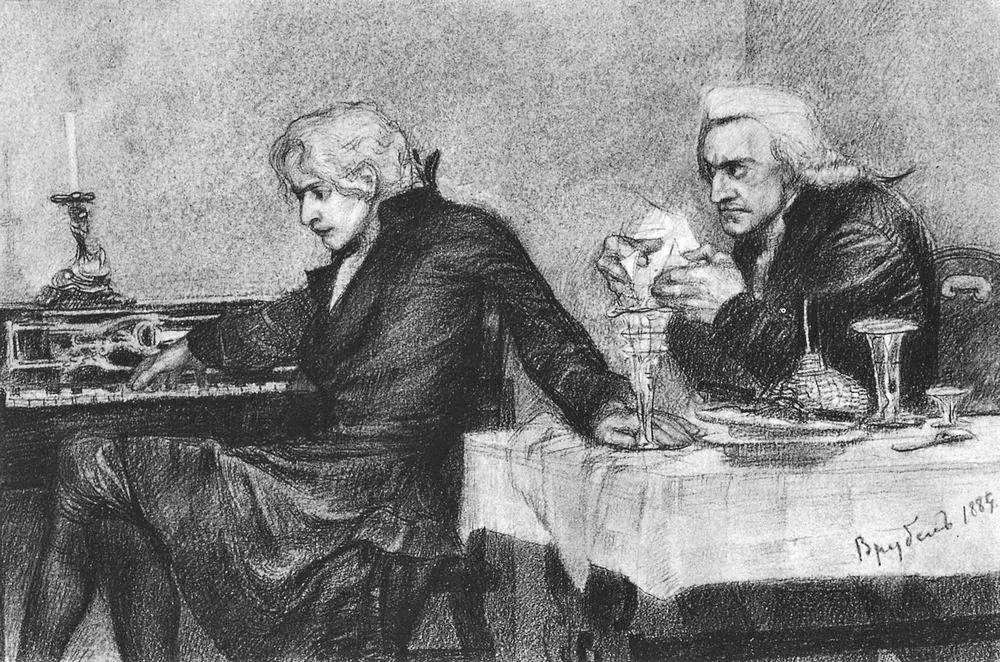The story of the sadly ended confrontation between two composers has become truly textbook. We figured out whether there is any reason to consider it true.
Both in Russian culture and abroad, the version that the Italian composer Antonio Salieri poisoned his more talented and younger colleague Wolfgang Amadeus Mozart became popular thanks to Alexander Sergeevich Pushkin. In 1828 (just three years after the death of the Italian), the poet published one of his “Little Tragedies”, based on the plot of Salieri added poison in Mozart's drink. Subsequently, based on this text, Rimsky-Korsakov wrote a one-act opera. The confrontation between the two composers also formed the basis of the film by Milos Forman "Amadeus", which, however, does not directly say anything about poisoning.
Wolfgang Amadeus Mozart died in December 1791 in Vienna at the age of 35. The sudden death of the composer, which occurred after a short illness, aroused suspicion. They were fueled, in particular, by Mozart’s connections with the Freemasons and the absence of his widow at the farewell and funeral. Rumors that the composer was poisoned appeared in the press within a week of his death.
The first biographies of Mozart were published a few years later, and they contain a description of the composer's illness, based, among other things, on the memories of his relatives. Judging by these studies, Mozart felt seriously unwell a couple of weeks before his death, when he was in Prague. Upon returning to Vienna, the illness worsened. Over the course of two weeks, the composer's body gradually became swollen and he experienced bouts of vomiting. As the composer's wife recalls, Mozart said that he could have been poisoned with arsenic-based poison, but did not put forward any specific arguments or accusations.

Mozart's own assumptions are not confirmed by documents of that time. The doctors who observed the dying composer did not leave any relevant reports, and no autopsy was performed after his death. In the register of St. Stephen's Cathedral, where the farewell took place, the cause of death is named prickly heat - in the 18th century, this was the name given to any fever with a rash. The lack of medical documents does not allow for an accurate diagnosis, but many doctors adhere to the version that the composer died suddenly due to an exacerbation of chronic liver problems. It is also possible that Mozart's death at a relatively young age was caused by the highly controversial treatment methods that his father used on his children.
It is widely believed that Salieri, who lived to an old age and was seriously ill in the last years of his life, allegedly confessed to poisoning Mozart and, in repentance, tried to cut his throat. How asserts researcher Alfred Borowitz, and the servants who did not leave Salieri for a minute did not confirm these rumors. Moreover, the composer's student Ignaz Moscheles, who visited Salieri shortly before his death, reported that his teacher's words could have been distorted. “From a moral point of view, he had no doubt that poisoned with his intrigues many hours of Mozart’s existence,” Moscheles recalled.
Finally, rumors of Mozart’s poisoning only became so well known thanks to a coincidence of circumstances. Similar stories were told, for example, about the composer Vincenzo Bellini, who died at the age of 33. Theories also multiplied due to the popularity of Freemasonry - some clearly conspiracy theories link Mozart’s death both to free masons and the Viennese elite, and to Jews, and the composer’s first biographers are suspected of hiding the truth. Let us repeat that there is no surviving documentary evidence that confirms either Mozart’s death from poisoning or Salieri’s confession to this crime.
In 1997, a trial was held in Milan, during which Salieri was acquitted. About this reports, for example, the authoritative Italian newspaper La Repubblica. True, in contrast to the fact that write Russian-language sources, it was primarily a cultural event. Although the actors (for example, the judge Vincenzo Salafia) were real lawyers, at the end of the La Repubblica publication it is specified that the trial was informal and the decision has no legal force. The fact that the meeting was a simulation of a court with the participation of high-ranking and qualified lawyers, as well as specialists in the life and work of both composers, confirmed and the Association of Friends of the Milan Conservatory, which co-organized this process.
Not true
- A series of historical and musical programs “Mozart and Salieri”
- Albert I. Borowitz. Salieri and the "Murder" of Mozart
- R. Treves. Mozart's Death
If you find a spelling or grammatical error, please let us know by highlighting the error text and clicking Ctrl+Enter.







